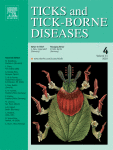Ver ítem
- xmlui.general.dspace_homeCentros e Institutos de InvestigaciónCICVyA. Centro de Investigación en Ciencias Veterinarias y AgronómicasInstituto de BiotecnologíaArtículos científicosxmlui.ArtifactBrowser.ItemViewer.trail
- Inicio
- Centros e Institutos de Investigación
- CICVyA. Centro de Investigación en Ciencias Veterinarias y Agronómicas
- Instituto de Biotecnología
- Artículos científicos
- Ver ítem
A prime-boost combination of a three-protein cocktail and multiepitopic MVA as a vaccine against Babesia bigemina elicits neutralizing antibodies and a Th1 cellular immune response in mice
Resumen
In the intraerythrocytic protozoan parasites of the genus Babesia both innate and adaptive immune responses are necessary to confer protection against clinical disease. In particular, the adaptive immune response involves the production of neutralizing antibodies as well as the presentation of parasite antigens to CD4+ T lymphocytes by professional antigen-presenting cells. Therefore, the development of alternative vaccines that replace the use of live
[ver mas...]
In the intraerythrocytic protozoan parasites of the genus Babesia both innate and adaptive immune responses are necessary to confer protection against clinical disease. In particular, the adaptive immune response involves the production of neutralizing antibodies as well as the presentation of parasite antigens to CD4+ T lymphocytes by professional antigen-presenting cells. Therefore, the development of alternative vaccines that replace the use of live attenuated strains should include relevant epitopes targeting both B and T cell responses. The aim of this study was to design new Babesia bigemina immunogens and evaluate the humoral and cellular responses in mice. To achieve this, three B. bigemina recombinant antigens called Apical Membrane Antigen 1 (AMA-1), Rhoptry Associated Protein 1 (RAP-1) and the Thrombospondin Related Anonymous Protein 1 (TRAP-1) were obtained. Besides, two recombinant modified vaccinia virus Ankara vectors coding for chimeric constructs containing bioinformatically predicted B and T cell epitopes from the same three antigens were generated. These immunogens were evaluated in prime-boost heterologous schemes. Among the combinations tested, priming with a cocktail of the three proteins followed by a booster immunization with a mix of both viruses induced the highest activation of IFN-γ+ CD4+ and CD8+ antigen-specific T cell responses. Remarkably, all vaccine schemes containing antigen cocktails also induced antibodies that were capable of neutralizing merozoite invasion of bovine erythrocytes in vitro at a level comparable to an anti B. bigemina hyperimmune bovine serum. Our results offer a new perspective for vaccines against B. bigemina combining bioinformatics predictions and prime-boost immunization regimes for future control measures against bovine babesiosis.
[Cerrar]

Fuente
Ticks and Tick-borne Diseases 13 (5) : 101991 (Septiembre 2022)
Fecha
2022-09
Editorial
Elsevier
ISSN
1877-959X
Documentos Relacionados
Formato
pdf
Tipo de documento
artículo
Proyectos
(ver más)
INTA/2019-PD-E5-I102-001/2019-PD-E5-I102-001/AR./Desarrollo de vacunas y tecnologías para mejorar las estrategias profilácticas y terapéuticas de las enfermedades que afectan la producción animal y la salud pública
Palabras Claves
Derechos de acceso
Restringido
 Excepto donde se diga explicitamente, este item se publica bajo la siguiente descripción: Creative Commons Attribution-NonCommercial-ShareAlike 2.5 Unported (CC BY-NC-SA 2.5)
Excepto donde se diga explicitamente, este item se publica bajo la siguiente descripción: Creative Commons Attribution-NonCommercial-ShareAlike 2.5 Unported (CC BY-NC-SA 2.5)

